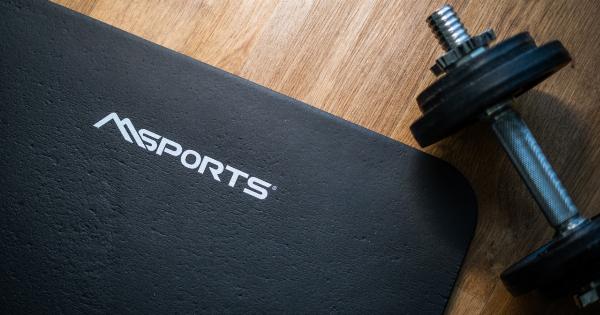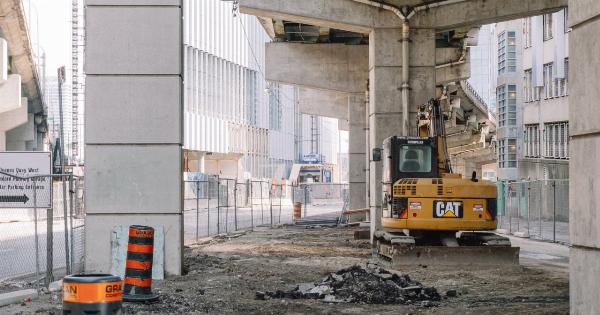Hemorrhoids can cause discomfort, pain, and embarrassment. They are swollen veins located in the anus and rectum that can be caused by factors such as constipation, pregnancy, and prolonged sitting.
Fortunately, you can prevent hemorrhoids from developing by making some lifestyle changes. In this article, we’ll explore 30 tips to prevent hemorrhoids.
1. Eat a High-Fiber Diet
Fiber adds bulk to stools, making them easier to pass. It also helps to prevent constipation, which is a major cause of hemorrhoids. Foods that are high in fiber include whole grains, fruits, and vegetables.
Aim to consume at least 25 grams of fiber per day.
2. Drink Plenty of Water
Dehydration can cause constipation, which can in turn lead to hemorrhoids. Drinking plenty of water helps to keep stools soft and easy to pass. Aim to drink at least eight glasses of water per day.
3. Exercise Regularly
Regular exercise can help to keep the digestive system functioning properly, reducing the risk of constipation and hemorrhoids. Aim to exercise for at least 30 minutes most days of the week.
4. Avoid Sitting for Extended Periods
Sitting for long periods can put pressure on the rectal area, increasing the risk of hemorrhoids. If you have a desk job, try to stand or take short walking breaks every 30 minutes.
5. Practice Good Bathroom Habits
Avoid straining when using the bathroom, as this can increase the pressure on the veins in the rectal area. Also, don’t sit on the toilet for extended periods, as this can further increase pressure. Instead, try to go when you first feel the urge.
6. Use the Correct Toilet Posture
Raising your feet on a stool or using a squatting position can help to improve bowel movements and reduce the risk of hemorrhoids.
7. Avoid Spicy and Greasy Foods
Spicy and greasy foods can irritate the digestive system, potentially leading to hemorrhoids. Try to avoid these types of foods, especially if you are prone to constipation.
8. Practice Good Hygiene
Keeping the anal area clean can help to reduce irritation and inflammation, reducing the risk of hemorrhoids. After using the bathroom, gently wash the area with mild soap and warm water and pat dry with a soft towel.
Avoid using harsh soaps or wipes, as these can further irritate the area.
9. Don’t Hold in Bowel Movements
Holding in bowel movements can lead to constipation, which can in turn lead to hemorrhoids. When you feel the urge, try to go as soon as possible.
10. Maintain a Healthy Weight
Being overweight can put extra pressure on the veins in the rectal area, increasing the risk of hemorrhoids. Maintaining a healthy weight through a balanced diet and regular exercise can help to reduce this risk.
11. Avoid Straining During Heavy Lifting
Straining during heavy lifting can put pressure on the rectal area, potentially leading to hemorrhoids. Try to use proper lifting techniques, and avoid lifting objects that are too heavy for you.
12. Manage Stress
Stress can cause digestive problems, potentially leading to constipation and hemorrhoids. Practicing stress-management techniques such as meditation, yoga, or deep breathing can help to reduce this risk.
13. Don’t Smoke
Smoking can lead to chronic coughing, which can put pressure on the rectal area and potentially lead to hemorrhoids. Quitting smoking can help to reduce this risk.
14. Get Regular Check-Ups
Regular check-ups with your doctor can help to identify any potential health problems that could contribute to hemorrhoids, such as diabetes or inflammatory bowel disease.
15. Use Over-the-Counter Treatments
Over-the-counter treatments such as creams and ointments can help to relieve the symptoms of hemorrhoids, including itching and burning. Look for products that contain ingredients such as witch hazel, hydrocortisone, or aloe vera.
16. Try Sitz Baths
A sitz bath involves soaking the anal area in warm water for 10-15 minutes. This can help to reduce inflammation and relieve symptoms of hemorrhoids. You can purchase a special sitz bath basin or simply use a bathtub.
17. Use Ice Packs
Applying an ice pack to the anal area for 10-15 minutes at a time can help to reduce swelling and relieve pain and itching.
18. Consider Natural Remedies
Natural remedies such as aloe vera gel, witch hazel, and apple cider vinegar can help to reduce inflammation and relieve symptoms of hemorrhoids.
19. Use Suppositories
Suppositories are small, cone-shaped objects that are inserted into the anus to help relieve symptoms of hemorrhoids. Look for products that contain ingredients such as cocoa butter or hydrocortisone.
20. Don’t Scratch Itchy Hemorrhoids
Scratching can further irritate hemorrhoids, potentially leading to infection and increased pain and itching. Instead, try using a cold compress or applying a cream or ointment.
21. Consider Surgery
In severe cases, surgery may be necessary to remove hemorrhoids. Talk to your doctor about the risks and benefits of surgery.
22. Avoid Tight Clothing
Tight clothing can restrict blood flow to the rectal area, potentially increasing the risk of hemorrhoids. Try to wear loose, comfortable clothing, especially around the waist and buttocks.
23. Avoid Heavy Straining During Bowel Movements
Heavy straining during bowel movements can irritate the rectal area, potentially leading to hemorrhoids. Try to relax and breathe deeply when using the bathroom.
24. Get Enough Rest
Getting enough rest can help to keep your digestive system functioning properly and reduce the risk of constipation and hemorrhoids. Aim to get at least 7-9 hours of sleep per night.
25. Consider Taking Supplements
Supplements such as psyllium husk or flaxseed can help to add bulk to stools, reducing the risk of constipation and hemorrhoids.
26. Avoid Alcohol and Caffeine
Alcohol and caffeine can dehydrate the body and contribute to constipation, potentially leading to hemorrhoids. Try to limit your consumption of these substances.
27. Eat Yogurt or Other Probiotic Foods
Probiotic foods such as yogurt can help to promote healthy digestion and reduce the risk of constipation and hemorrhoids.
28. Elevate your Feet While Sitting
Raising your feet while sitting can help to improve blood flow to the rectal area, reducing the risk of hemorrhoids.
29. Take a Walk After Eating
Taking a short walk after eating can help to stimulate the digestive system and reduce the risk of constipation and hemorrhoids.
30. Don’t Delay Treatment
If you experience symptoms of hemorrhoids, such as itching, pain, or bleeding, don’t delay treatment. Early intervention can help to prevent the condition from getting worse.
Conclusion
Preventing hemorrhoids is all about maintaining a healthy digestive system and taking steps to reduce irritation and inflammation in the rectal area. By following these 30 tips, you can reduce your risk of hemorrhoids and enjoy better digestive health.































